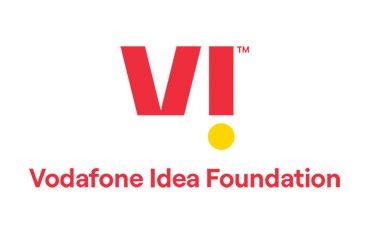New Delhi, 4th January 2024: Medica Superspecialty Hospital, the largest hospital chain in Eastern India, achieved remarkable milestones by conducting the first successful 'Chronic Total Occlusion (CTO) procedure on Impella support' in Eastern India, on a 66-year-old, male patient from Dhakuria, Kolkata. This pioneering procedure was carried out by an adept cardiac team led by Dr. Dilip Kumar, Director-Cardiac Cath Lab Senior Consultant Interventional Cardiologist & Electrophysiologist, Chief Academic Co-Ordinator Medica Institute of Cardiac Science (MICS). Assisting him was Dr. Dipanjan Chatterjee, Director ECMO and Thoracic Organ transplant program, Physician, Head Cardiopulmonary Care Specialist, Medica Superspecialty Hospital. In addition to this accomplishment, Dr. Dilip Kumar has successfully conducted the first successful - Balloon Mitral Valvuloplasty, on Ms. Aarti Singh, a 33-year-old woman from Siliguri who was in her 32nd week of a twin pregnancy at Medica Superspecialty Hospital.
In the realm of cardiac care, the Impella device stands out as a revolutionary solution, particularly in cases where conventional procedures pose heightened risks due to a weakened heart. The Impella device comes into play during critical situations, such as a heart attack, where any immediate intervention might precipitate cardiac shock, risking the heart's functionality. To mitigate this risk, patients are temporarily placed on implants that handle crucial heart functions, allowing a window of 4 to 6 hours for subsequent interventions. In instances of severe artery blockage, the intervention process may be delayed, necessitating additional support. The Impella device, known as the world's smallest heart pumping machine, becomes indispensable in such scenarios. Operable solely by cardiologists, this device unburdens the heart, facilitating enhanced recovery. Distinguishing itself from other cardiac surgeries, Impella holds a unique position with no direct alternative. The introduction of Impella has not only expanded treatment options but has significantly extended the lifespan of patients grappling with complex heart diseases. The device can also be strategically deployed when patients are awaiting a heart transplant, bridging the critical time until the transplant becomes feasible. As a device implanted temporarily within the body, Impella allows external control through a console situated around the patient in the ICU. This console facilitates the monitoring of blood pressure fluctuations, blood flow rates, and other vital parameters. The recovery period varies, depending on the nature of the procedure. For angioplasty, patients may experience recovery in as little as 30 minutes, showcasing the efficiency and efficacy of Impella in expedited recuperation.
The other case highlights a 33-year-old woman, pregnant with twins conceived through IVF, faced a critical health challenge at 32 weeks into her pregnancy. She began experiencing breathing difficulties due to a condition called Mitral Valve Stenosis, a narrowing of the valve between the left heart chambers. This condition hindered blood flow into the heart's main pumping chamber, leading to heart failure and jeopardizing the lives of both the mother and the babies. Initially, attempts at BMV (Balloon Mitral Valvuloplasty) at another hospital were unsuccessful in Siliguri, prompting her transfer to Medica Superspecialty Hospital. Recognizing the urgency of the situation—the imminent threat to both the mother's life and the lives of the unborn children— Dr. Dilip Kumar, opted for the minimally invasive procedure called BMV (Balloon Mitral Valvuloplasty). This cardiac intervention involved using a catheter with a balloon on its tip to open the narrowed heart valve. Fortunately, the operation was successful, resulting in the saving of the mother's and babies' lives.
While talking about both the cases, Dr. Dilip Kumar shared, “I must highlight that we have previously conducted Balloon Mitral Valvuloplasty on pregnant women. However, this particular case stands out as the first of its kind in India, and possibly worldwide. Here, we successfully performed the procedure on a woman expecting twins. Following the operation, she recovered well, and at the 36th week of her pregnancy, she gave birth to two healthy babies in Chhattisgarh. On the other hand, the selection criteria for patients suitable for Impella treatment are rare. It typically caters to a very few cases, constituting perhaps 1-2% of patients who, due to the severity of their condition, fall into the category of unsalvageable without advanced support. The treatment is a beacon of hope for individuals facing dire cardiac circumstances, providing a lifeline when conventional approaches fall short. Beyond the confines of Eastern India, the progress of Impella adoption is evident, with 3-4 cases reported in both South and North India. The age demographic of patients benefiting from Impella tends to hover around 58 to 59 years, underlining its relevance for a middle-aged population grappling with acute cardiac challenges. At Medica, we have the required expertise and have become the first hospital to successfully employ this device to a patient undergoing cardiogenic shock and aid in recuperation. However, it's noteworthy that deploying Impella is not merely a technical challenge; it necessitates substantial financial investment, approximately 25 lakhs, for a 4–6-hour operation. This financial aspect underscores the commitment required to initiate and sustain such a program.”


